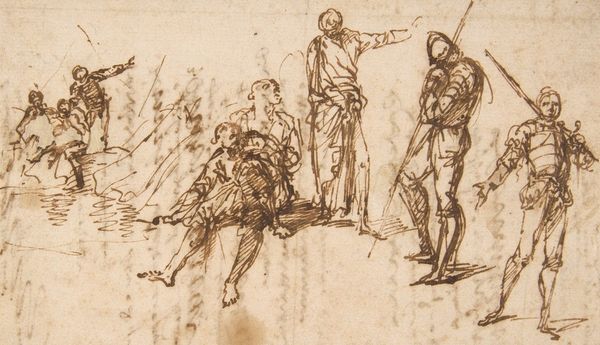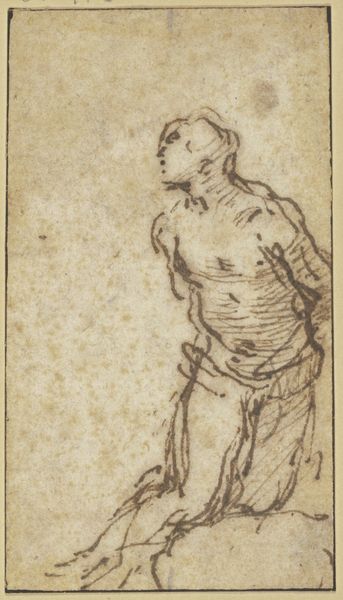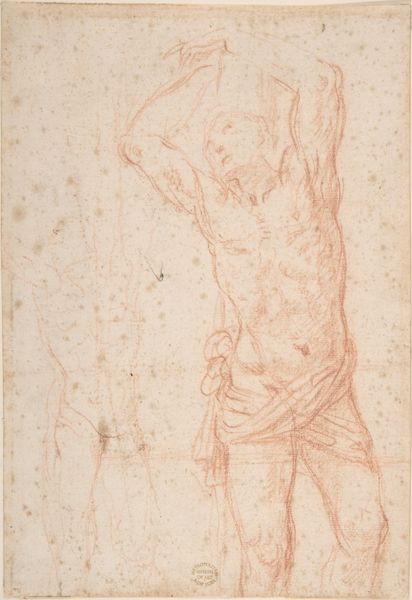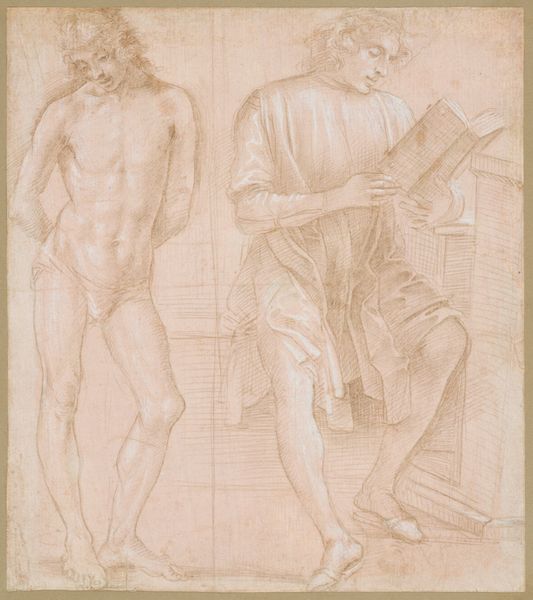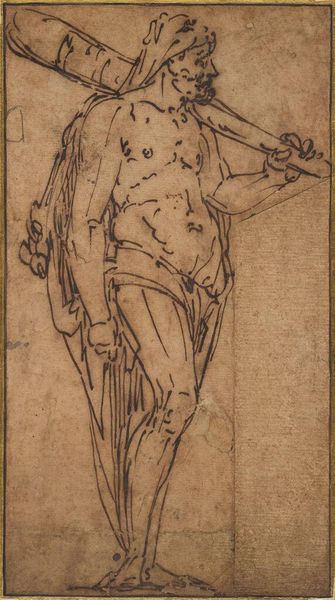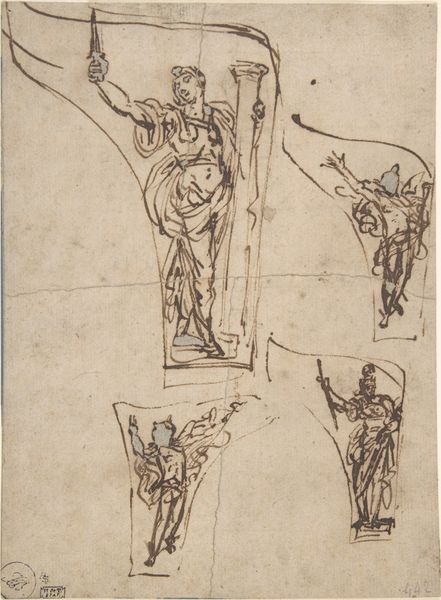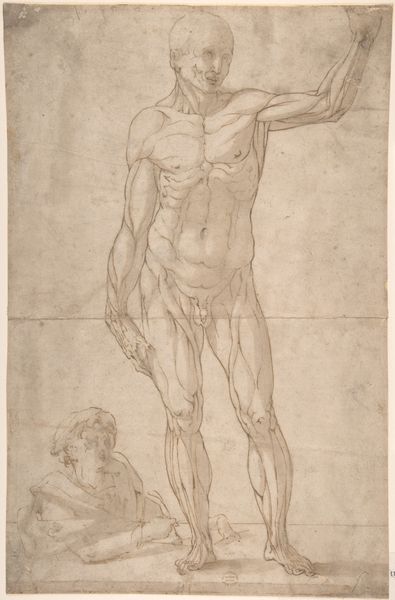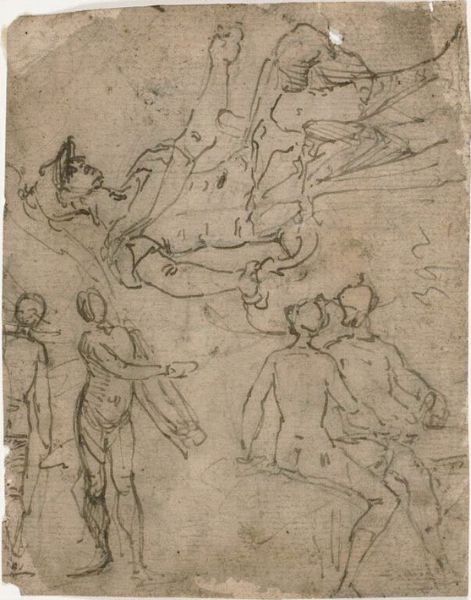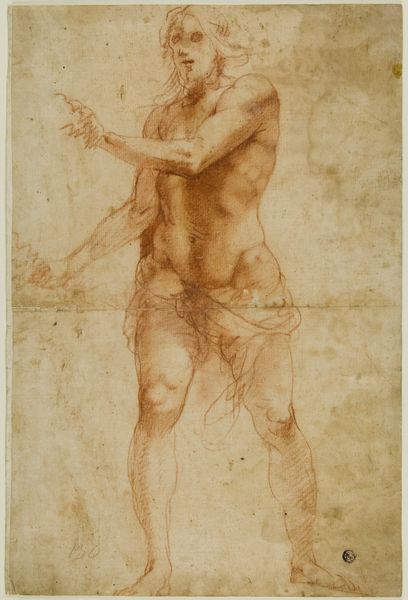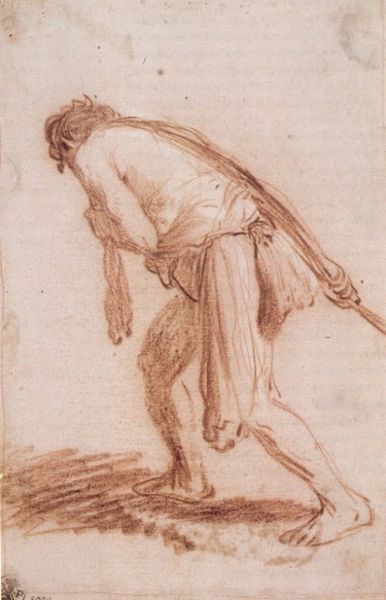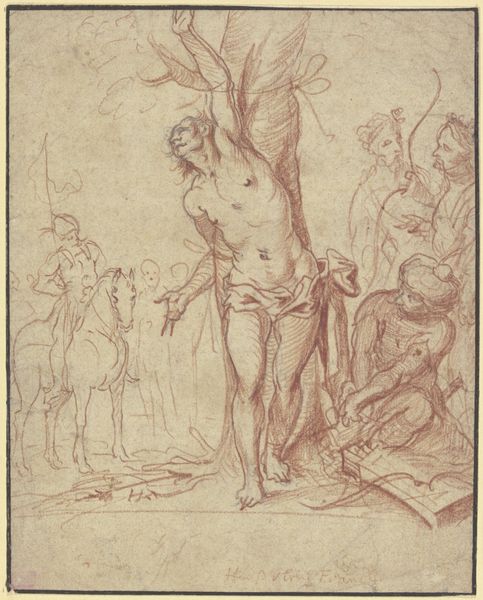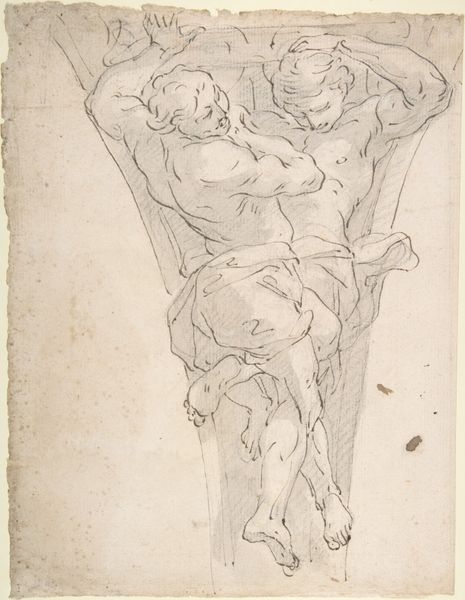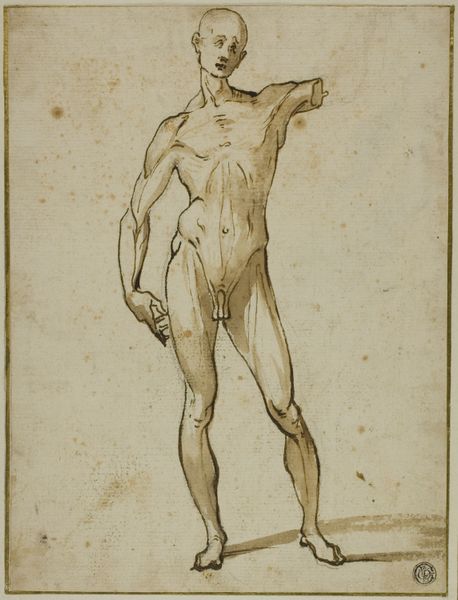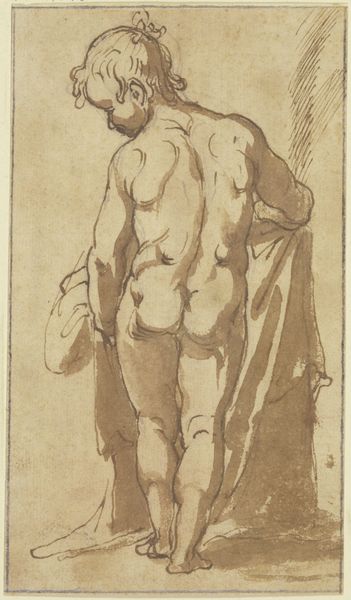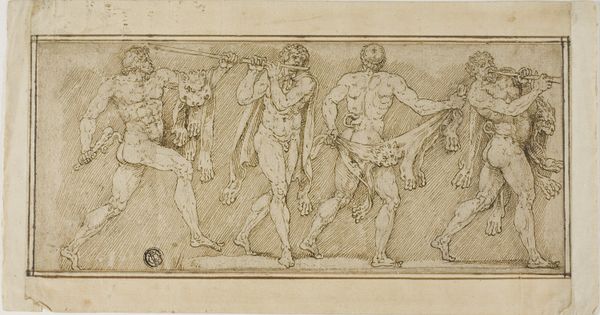
drawing, paper, ink
#
portrait
#
drawing
#
figuration
#
paper
#
ink
#
history-painting
#
italian-renaissance
Copyright: Public domain
Andrea Mantegna sketched "Two Studies for Christ at the Column" with pen and brown ink on paper. While the materials appear traditional, the approach to drawing is innovative. Mantegna's use of line is crucial; it’s not just descriptive but conveys volume, muscle strain, and emotional weight. The quick, decisive strokes suggest the artist deeply understood human anatomy. The drawing also shows Mantegna’s interest in classical forms, evident in the idealized physiques and the architectural column. Drawings like this were vital for planning larger works. They represent hours of labor, not just in the execution, but also in the study and practice required to master such a skill. Mantegna’s expertise wasn’t simply about artistic expression; it was a craft, honed through dedication and hard work. By focusing on Mantegna's process, we can see how his drawings encapsulate both artistic vision and the cultural values placed on skilled craftsmanship during the Renaissance.
Comments
No comments
Be the first to comment and join the conversation on the ultimate creative platform.
